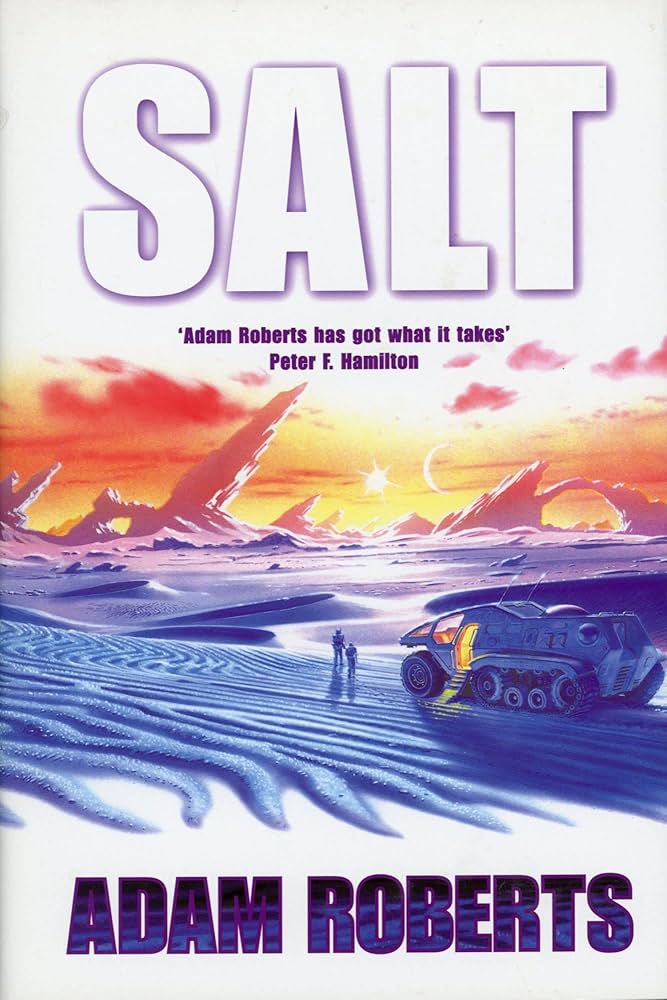This year, PADERBORN2READ—The English Book Club celebrates the twelve days of Christmas with twelve curated reading recommendations for the festive season and cozy winter days.
The tenth day of Christmas, with ten lords a-leaping—and yet another sci-fi epos unfolding on an unwelcoming planet:
Salt by Adam Roberts
recommended by PADERBORN2READ member Yasha
In the far future, eleven religious communities proclaiming faith in the same god set out to colonize an unfortunately nearly uninhabitable salt planet, but soon fall into the trappings of politics, prejudice, and imperialism. Barlei, an Orwellian dictator of a strictly conservative colony, believes in money, power, and order. The cunning leader of Senaar, he usurped his predecessor, skillfully navigates his nation’s complicated legal system, and manipulates his own people as much as many of the other colonies in order to achieve his goal of political hegemony. Petja, on the other hand, is a citizen of Als, an anarchist community, and abhors all law and thinks of rape and murder as casually and judgment-free as having drinks with your friends after a day at work. He only became the ambassador of his people because Als’ voluntary work-rota assigned it to him and he had nothing better to do. The two of them narrate their respective peoples’ ways of dealing with the harsh and unforgiving environment as they descend into brutal war.
It’s not easy to describe why I like this book so much. Barlei is a tyrant, Petja is a rapist, and by the end of it, they are both worse than before. Immoral narrators are nothing new, of course; perhaps it is the contrast of the double-speaking Barlei, proclaiming support for democracy, republicanism, fairness, and rule of law, all while being a Machiavellian despot who pursues nothing more than Senaarian political and ethnic supremacy, against Petja, who calmly considers murdering a defenseless man in a hospital bed because he annoys him, but despises the fact that warfare forces him to abandon his country’s most sacred value of not having any hierarchies—and himself, for perversely enjoying being in charge of “his” soldiers. In any case, I really recommend this novel to anyone interested in anarchism, perspectivism, and moral philosophy, and anyone who just wants to read about two messed up people leading their nations to war for unfortunately very realistically stupid reasons.

